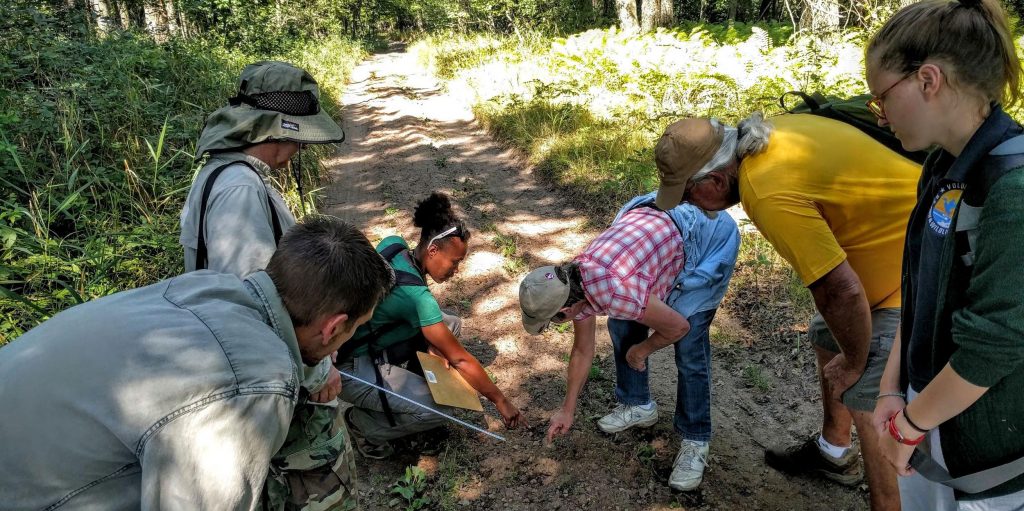Community Initiatives
People of all ages and levels of science knowledge can participate and learn from informal science education activities. LTER sites host a variety of informal education resources such as, nature trails, field investigations, research tours and citizen science projects all of which have a goal of increasing the public knowledge and appreciation of the ecological world around them.
Many LTER sites participate in citizen science projects such as the National Phenology Network or Cedar Creek LTER’s Eyes on the Wild project, in which citizen scientists help identify camera trap photos. By paring school students, interested citizens, or stakeholders with scientists to further scientific research, citizen science helps to engage non-scientists in the scientific process and make research more accessible to everyone.

Another way for scientists and non-scientists to learn more about each other’s work, lives, and motivations is to participate in art-science collaborations, which take place at many LTER sites. Several LTER sites also participate in the Ecological Reflections project, a network of sites dedicated to long-term, collaborative science and art inquiry at particular sites of great ecological or cultural importance.









